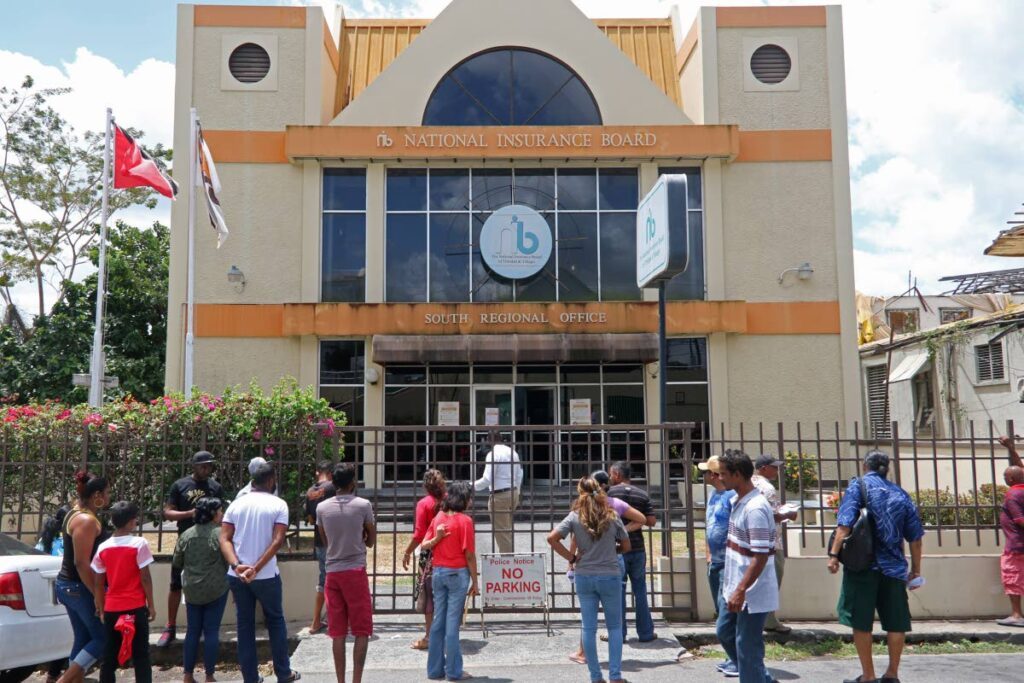Planning for future contingencies

DIANA MAHABIR-WYATT
As the end of the first month in the new year approaches, HR managers check to ensure their administrative systems are safely in place to deal with the changes in the economy and environment we know are coming, including the possibility of reorganisation, redundancy and restructuring, which begin to activate strategic plans covering future contingencies.
Among these are the severance payments made mandatory by our labour laws.
Severance payments, like pensions and old age grants, are among the systems set up by governments to care for citizens who have reached the age and stage of vulnerability when they are unable to support themselves and often have no family to depend on for survival.
The government expects that the privileges of adult citizenship are balanced by the acknowledgement and acceptance of the responsibility of being able to support oneself and one’s dependents.
The media have made us all aware that failed societies are heading into third-world status, and neither government nor individuals are capable of supporting their vulnerable people.
They are simply left homeless, without food, water or medical support, left to die of malnutrition, exposure and disease.
The term “civilisation” denotes the willingness of the strong to support the weak and vulnerable.
In TT, various systems have been set up whereby this can be done. Among these are taxing earnings through contributory NIS, pension, medical and dental schemes and affordable housing.
Employees are offered the opportunity to participate in these plans, which they do not always accept, either because they expect to get the benefits all for free, failure in the systems or because of criminal cheating by those trusted to invest contributions.
Then there are legal systems that favour the rich and legally strip others of what they have invested.
Take Acelor Mittal Steel Company, which invested billions in TT some decades ago and employed thousands of workers to keep the flourishing plant going in Point Lisas.
Workers were well paid and contributed to pension systems set up by the company as well as to the statutory NIS systems. But, when the price of steel on the world market declined, the Steelworkers Union demanded an increase in wages that the company had undertaken but could no longer afford. A dispute over wages ended up in the Industrial Court, which sided with the union and ordered the company to pay the increase.
The company could not pay, so it shut down and moved to the UK, where 3,000 UK workers took up the positions. This left 3,000 TT workers jobless, with no pensions and severance pay, because the wording of the law said if the company no longer existed, neither did the pension scheme nor the severance obligations.
From the UK, it moved to four locations in the US with laws more welcoming to business operations.
No plans to protect citizens, even those protected by law under a socialist system, are foolproof. All plans and investments have an element of risk. In times of economic uncertainty, nothing is absolutely certain.
The best-laid plans, the most prestigious and trusted plans, can and do fail. The list is long – CLICO, Hindu Credit Union, Mittal Steel, Crown General, Kirpalani’s – it goes on.
The only certainty for employees is that companies with pension schemes are safer than those without.
Countries with social security are safer than those without, and TT has better social-security laws and systems than any other Caribbean country we are aware of.
Except as they apply to public servants, every social-security system requires the contribution of the members who expect to benefit from it.
Nothing will result from a refusal to contribute data and information that is needed to enable any system to work or to apply to an individual beneficiary.
Since most such systems are administered by those that employ people, one of the safeguards is to know whether your employer has set up and administers the systems that will carry you through and how to access them. Remember during covid lockdowns when unemployed mothers, who had no work records – because they had to look after their children or be charged for criminal negligence, and so had not been registered with the NIB – could not get government food grants, because they were not registered on any government system?
The company you work for will hopefully not be forced to close down or cut back staff in 2024, but the NIB will still cover people who cannot work any longer owing to certified ill health, making them permanently unfit to work. There are also provisions for retirement benefits for those coming to retirement age who have worked in companies that were unable to afford a private pension scheme to cover them. As long as the employees have been registered in a government system, they may still be protected.
If the individual employee has been covered by a company medical plan, whether contributory or not, but has also been contributing to the NIB, and owing to illness certified by a medical specialist as rendering them unfit to work, they will qualify for severance pay, in addition to any other benefits they will receive under any other system. These benefits will not be taxable.
A socialist system is not perfect, but it is the best we have.


Comments
"Planning for future contingencies"